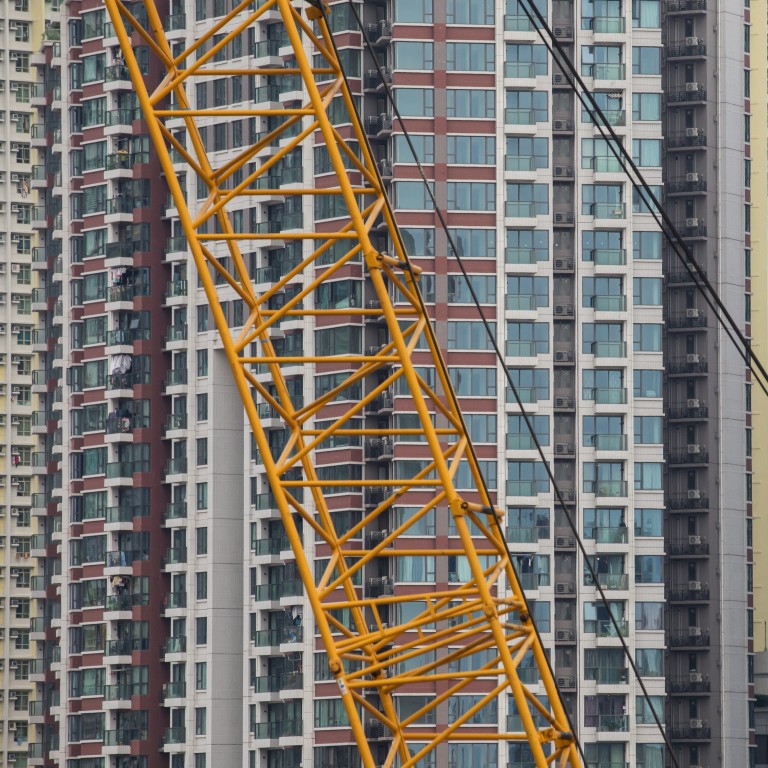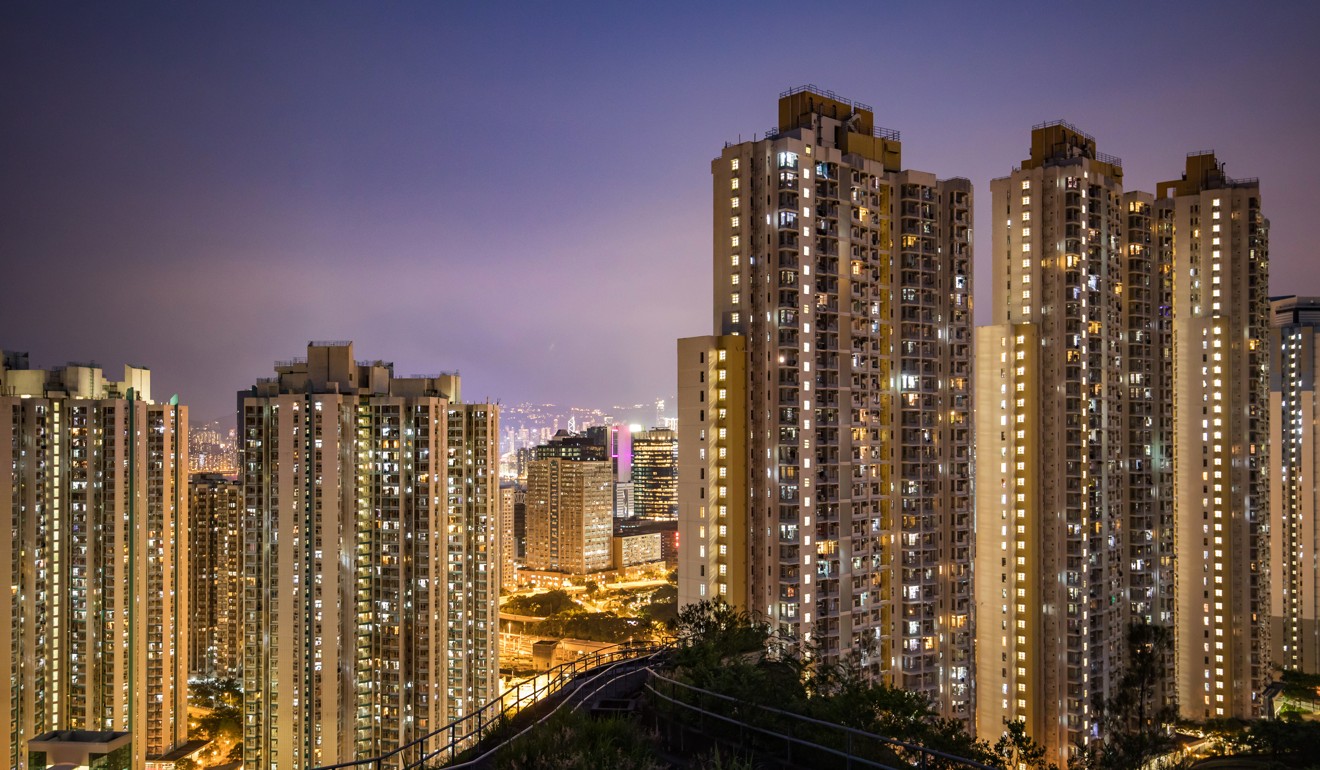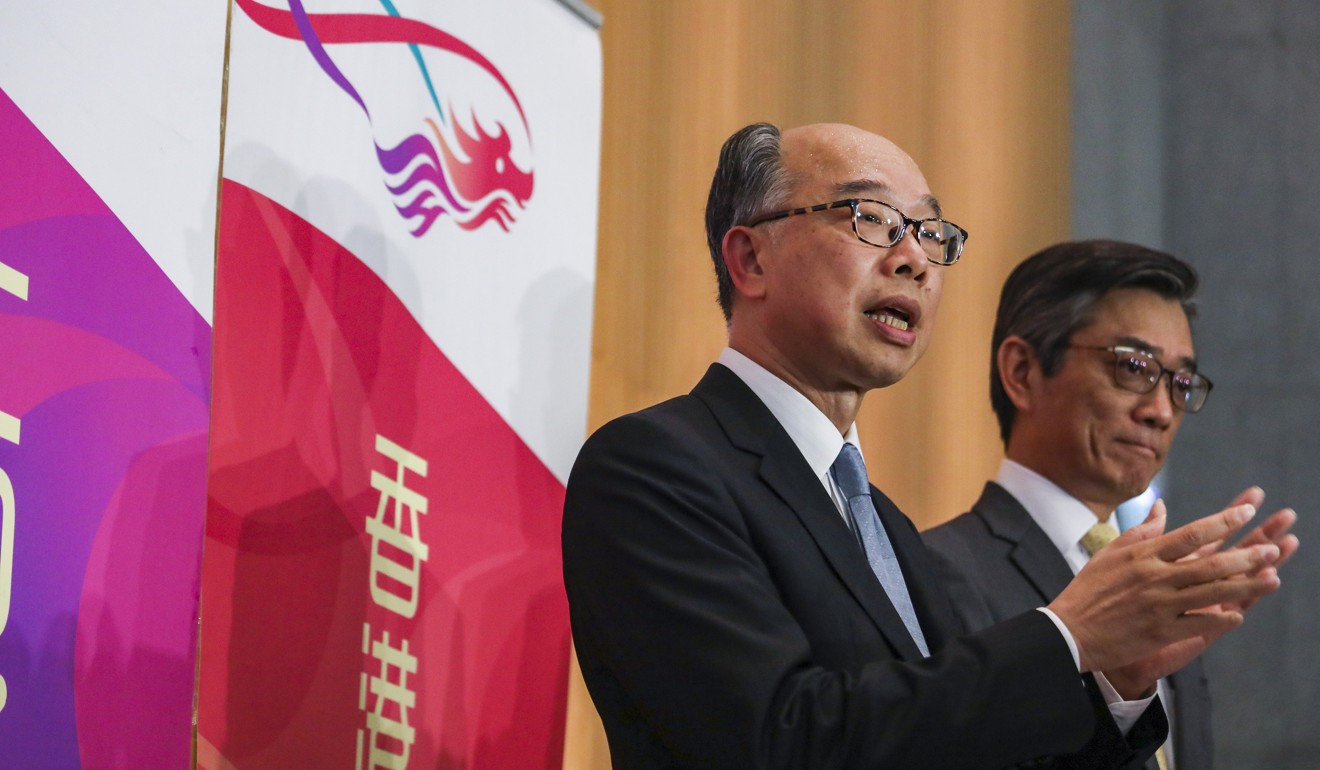
Decision to cut percentage of private housing stock prompts fears it will prevent Hong Kong’s property market from cooling down
- Demand likely to remain high as supply drops, keeping prices buoyant, say economists
- According to other analysts, however, the city’s property market is influenced more by the global economy than local policies
The Friday announcement to slash the supply of private flats to 30 per cent of Hong Kong’s total housing target for the next decade has triggered fears that the policy would stop the world’s most expensive property market from cooling down.
Land supply task force gives its backing to Lantau reclamation plan

So, in the next decade, the government will have to provide enough land to build 135,000 private homes, down from last year’s target of 180,000.
Secretary for Transport and Housing Frank Chan Fan said the private market would remain “healthy” in the short term because there was a committed supply of 20,000 private units in each of the next few years.
Hong Kong home prices accelerate their fall
“It will definitely affect the private market,” said economist Andy Kwan Cheuk-chiu “Now that supply will decrease, while demand remains keen, the expectation will be that the market will not cool down much, if at all.”
Kwan said the property market had recently shown signs of contracting, with some expecting prices to fall by as much as 30 per cent. The policy change would alter market expectation, he said, and the possible drop in prices might be reduced to only 10 per cent.

The reduced supply of private housing land will push land prices and rents of private homes up under keener competition, said Donald Fan, chief operating officer of Paliburg Holdings.
“Rents may be higher for those who do not stay in public or subsidised housing,” said Fan.
But Lawrence Poon Wing-cheung, a lecturer in the department of building science at City University, said the effect on prices in the private sector was less certain.
Ease housing crisis by curbing developers’ sales tactics, experts urge
This is because those who are qualified to buy subsidised housing could be more willing to wait rather than rush to buy expensive private flats and drive up prices.
“In the long run, the demand for private housing may decrease massively,” Poon said.
Leo Sin Yat-ming, a property marketing professor at Chinese University, said he would not rush to predict future market trends because the market had historically been influenced by the global economy more than by local policies. He said the result of the Sino-US trade war and China’s future economic outlook would also affect local property prices.
Stewart Leung Chi-kin, chairman of the Real Estate Developers Association’s executive committee, said the increase of public housing supply was good news for citizens, but he wondered whether the government could really meet the supply target.
“What will happen if the government cannot meet the target? … There should be a balance between the supply of public and private housing,” Leung said.
Additional reporting by Lam Ka-sing

